When a Rohingya refugee wrote his first speech in the English language just three years after he started learning the alphabet, he penned simple sentences that described deaths and massacres in his remote village, Kyauk Taw in the Rakhine state, Myanmar.
The 21-year-old Arif, addressing a small audience of refugees, activists and supporters of a refugee learning centre Elom Community Centre in Kuala Lumpur, had asked not to reveal his full name.
He wrote that when he was 10 years old, he saw people he knew come to his house to kill him and his family and burn their homes.
“I knew some of those people. They were our family friends. We saw them all the time.
“They came to our village with guns and knives,” Arif said, determined to finish his speech, only half believing how far he had come in learning the English language.
This new skill allowed him to leave the waiter job in the Selayang market canteen for a customer service role in a telecommunications shop in Ampang, outside east of Kuala Lumpur.
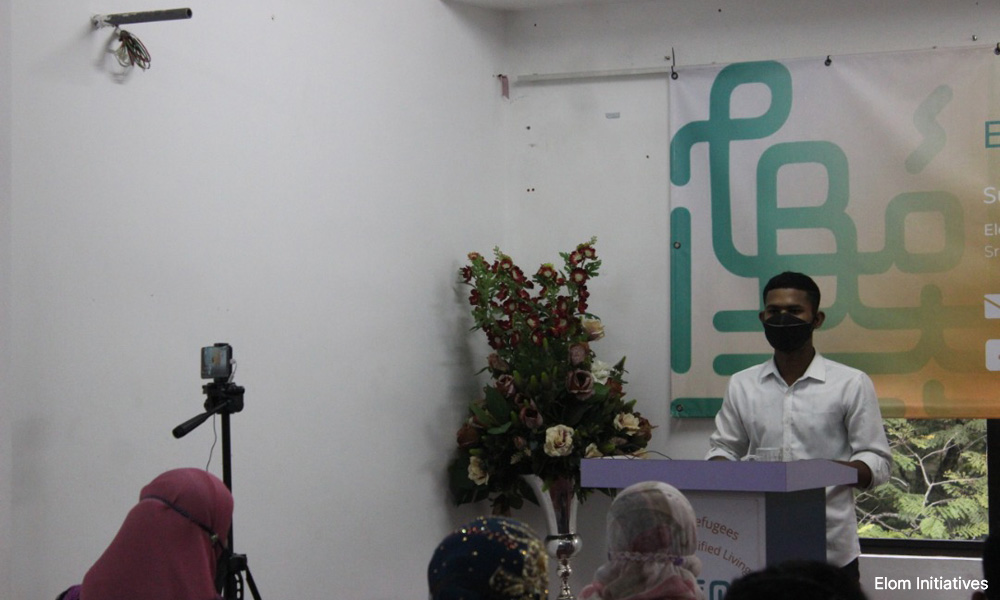
The community centre has not only given him a voice that could be heard by an international audience but has allowed him to dream that there were possibilities beyond the dingy working conditions of the Selayang market canteen.
Co-founder and director of the community centre Sujauddin Karimuddin said: “When I found him in 2018, he couldn’t even write his name. I approached him and offered to teach him the English language.
“He didn’t hesitate. He said ‘yes’ immediately and expressed how he had hoped for an education when he came to Malaysia.
“Arif wants to learn graphic designing and we are currently sourcing for used desktops that can support high-performance software, which companies are discarding,” he shared.
Arif’s narrative depiction of his journey to Malaysia told of his kidnapping and trafficking into Malaysia at the age of 13 years old.
He said he was grateful to the Elom Community Centre for the opportunity that has allowed him to be a useful person in Malaysian society.
“I study and volunteer at the centre. I also invite other people to come to study here. I would like to invite all of you to join us as well,” he said, ending his speech.
Cabinet withholds Wang Kelian report
Arif came to Malaysia in 2015, about the time Malaysia’s top cop announced the horrific finding of mass graves of refugees on both sides of the Malaysia-Thailand border.
In Malaysia, 139 graves were found in Wang Kelian, in the state of Perlis that were alleged to contain the remains of the ethnic Rohingya community of Myanmar or Bangladeshis trafficked into the country.
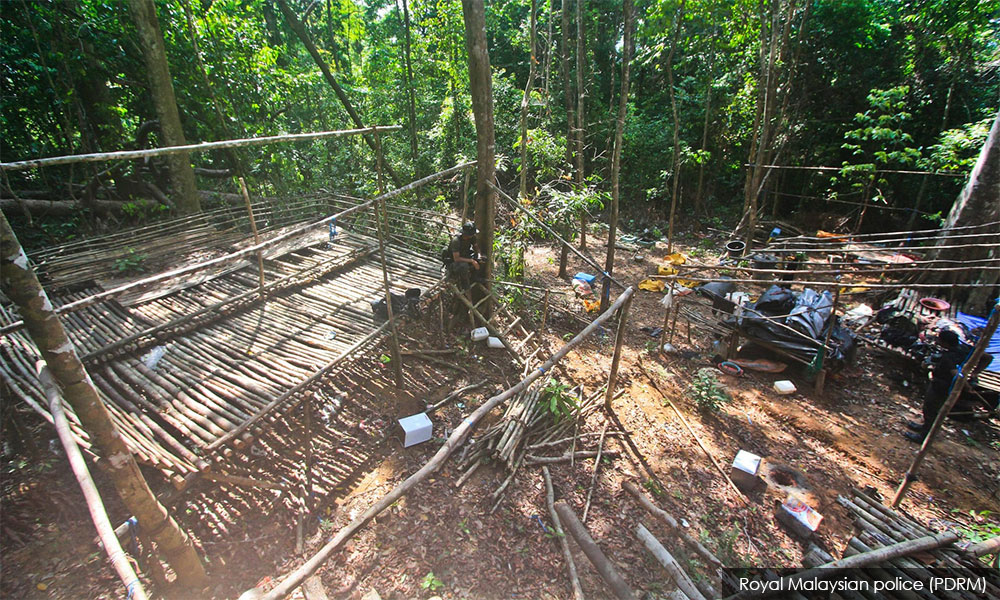
While a royal commission of inquiry (RCI) into the discovery of the temporary transit camps and mass graves at Wang Kelian had concluded in 2019, its findings have remained unpublished.
In January 2020, former prime minister Muhyiddin Yassin said the RCI report would be tabled to the cabinet and subsequently made public only with its approval.
However, the RCI report was never made public.
Meanwhile, by 2017, Thailand had sentenced former Thai army (lieutenant general) Manas Kongpan to 27 years in jail for profiting from people smuggling in relation to the Wang Kelian mass killings.
The sentence was increased to 82 years by the Thai court of appeal but Manas died last year in a prison hospital.
It was reported that at least 60 Thai state officials and businesspersons were also arrested and similarly sentenced, including the mayor of Songkhla.
In Malaysia, only four people were convicted for trafficking-related offences in relation to the 2015 finding but none of them Malaysian nationals.
Since the cabinet was silent on the RCI findings in 2020, a Southeast-Asia-based NGO, Fortify Rights, which collects, documents and analyses evidence of human rights violations released a statement.
It reported that at least 170,000 Rohingyas from Myanmar and Bangladesh were trafficked into Malaysia by transnational criminal syndicates, between 2012 and 2015.
This resonates with what Arif shared in his speech: “In 2012, many Rohingya people were killed all over the country. Many villages in our town were also burned.”
Refugees can contribute to society
Sujauddin explained that for half a century, Rohingyas were uprooted and the societal structure of their community destroyed.
Describing Arif as a skilled football player, small built but athletic and agile with a passion for martial arts and boxing, Sujauddin said all Arif’s dreams had been snatched away from him.
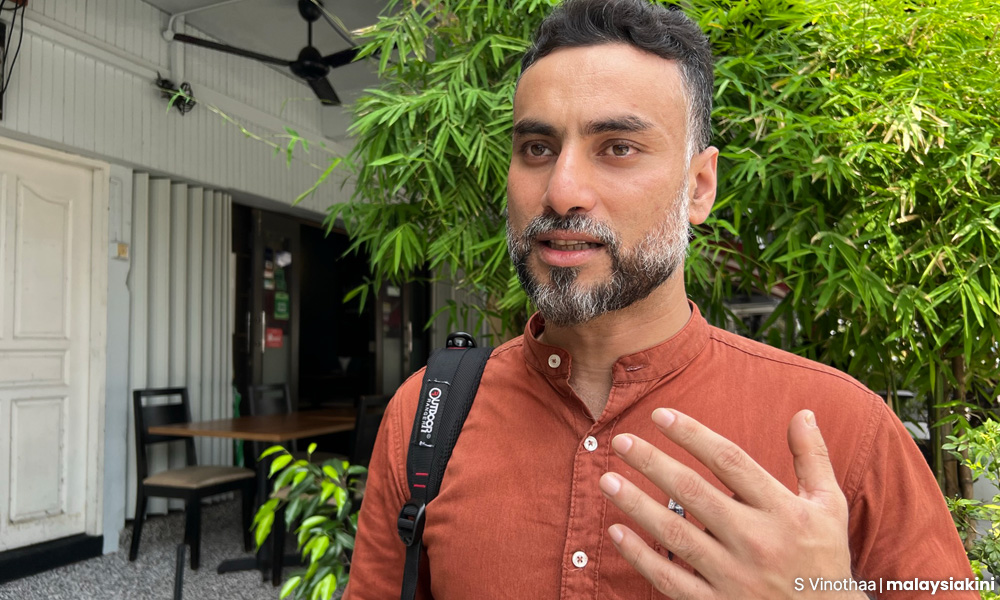
He said like other refugees, Arif wants to improve his English and with his current good command of Bahasa Malaysia, the choices available to him could be limitless.
He added that as refugees and asylum seekers waiting to be resettled, Rohingyas were able to contribute to the society they lived in.
“All we are asking from the people who are relevant in our situation is to allow us to empower ourselves so that we can go back to our land with full human rights and dignity to rebuild our society.
“We are not here to stay. We want to go home,” said Sujauddin, a former Rohingya refugee who arrived in Malaysia in 2000.
He was resettled in 2005 and is an Australian citizen but has been returning to Malaysia every Ramadan since he co-founded Elom Initiatives in 2008. Elom Initiatives operates the community centre.
Returning to Malaysia after the borders to international travel were reopened this year, Sujauddin is back to reopen and revive the community centre that had been shut for classes since the Covid-19 outbreak.
“Until now, although we have other activities, we have only taught English because, without basic language skills, we cannot teach them anything else.”
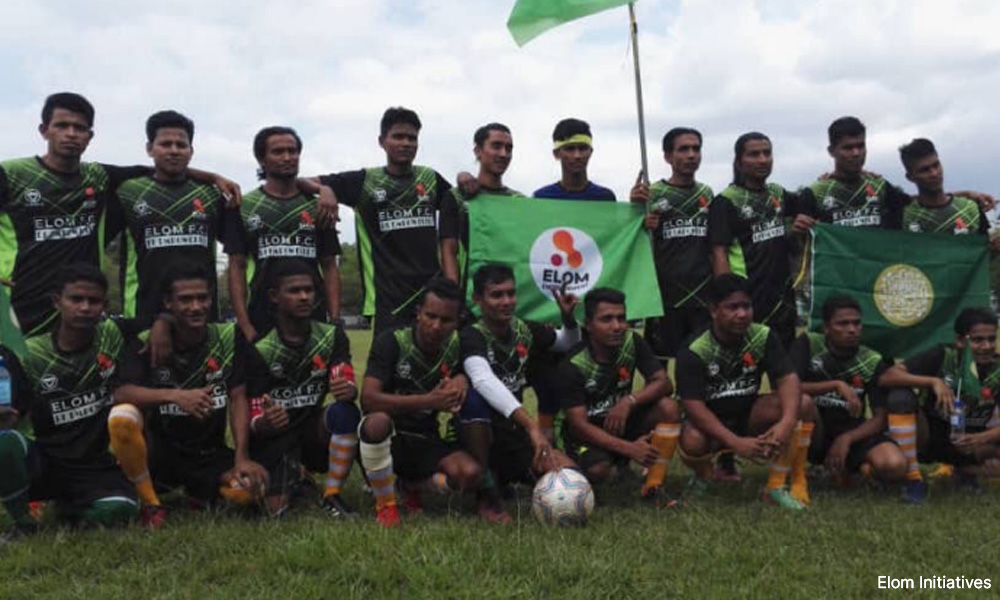
Centre open to all refugees
Although the community centre was set up by a former Rohingya refugee, it was open to all refugees.
Sujauddin said only 40 percent of its participants were ethnic Rohingyas.
At the time it was temporarily closed in 2020, there were 46 students aged between five and 55 years old, attending English classes, three nights a week.
“Since its inception in 2008, we have reached out to 2,092 refugees and asylum seekers and 933 of them were women. We also have a range of other activities including fun games and a child-friendly playroom for children.
“Most refugee families share tiny apartments three families to one which leaves very little room for the children to have fun, so we provide a safe space even for toddlers,” he added.
Located in Taman Sri Murni, Batu Caves just 13km north of Kuala Lumpur, the Elom Community Centre has been a base for self-empowerment, cultural development and integration programmes for refugees.
The centre organises community engagements which include an event called the community café where locals dine and mingle with refugees.
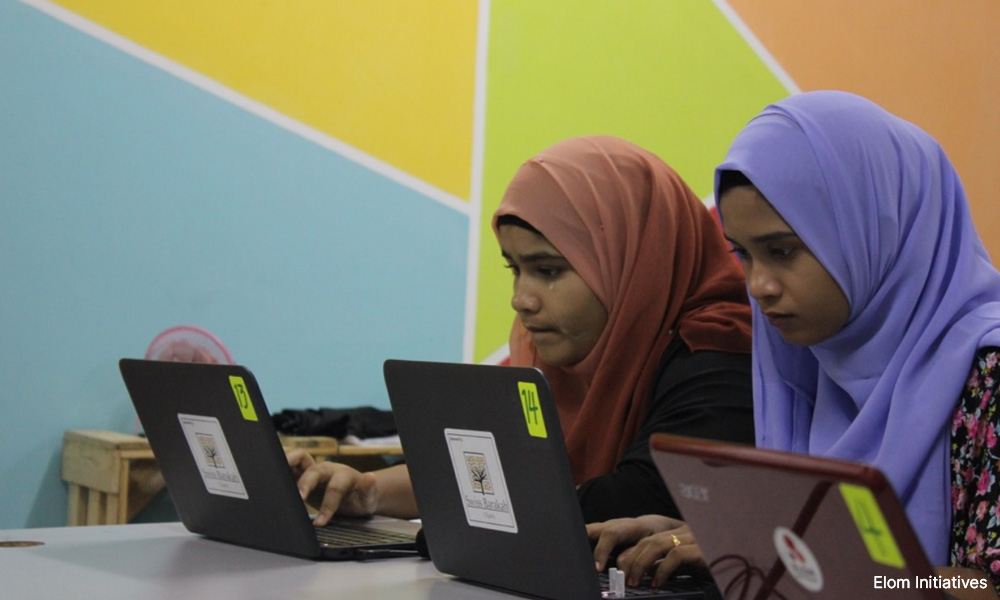
The centre focuses on activities like aid and emergency, women and youth empowerment, physical and mental health workshops and access to quality education.
“Once operations are back to normal, we will restart digital literacy classes, photography workshops, training on prenatal and antenatal support care, women’s rights classes, and speaking events at community gatherings,” Sujauddin said.
Other programmes that will resume are legal empowerment for refugees to learn about rights, financial literacy on how to manage their money and first aid training.
The centre will also be training teachers to teach English and already has two dozen volunteers to be trained.
“Currently, only English classes are offered daily with different levels of proficiency on different days,” he said.
Cambridge curriculum school
Next year, Sujauddin plans to expand the centre into a school teaching the Cambridge school curriculum but espouses a different view of education.
“Now that the internet has made it possible for students to enrol from any part of the world for courses offered by international universities, the school will be helpful toward their acceptance into higher learning institutions.
“But I don’t care so much about qualification. I care about education so even if their qualifications are not recognised by certain governments, it’s more important that they have an education.
“They can find ways to better themselves. So, education in each field is a skill they can use to improve their lives,” he explained.
This is reflected in the name “Elom” which means “knowledge and education in the Rohingya language and the logo is a representation of this word designed in Rohingya calligraphy.
Struggle for refugee status
However, his passion to rebuild the community began shortly after he first arrived in Malaysia and realised that Rohingyas were not recognised as refugees or asylum seekers by the United Nations High Commissioner for Refugees (UNHCR).
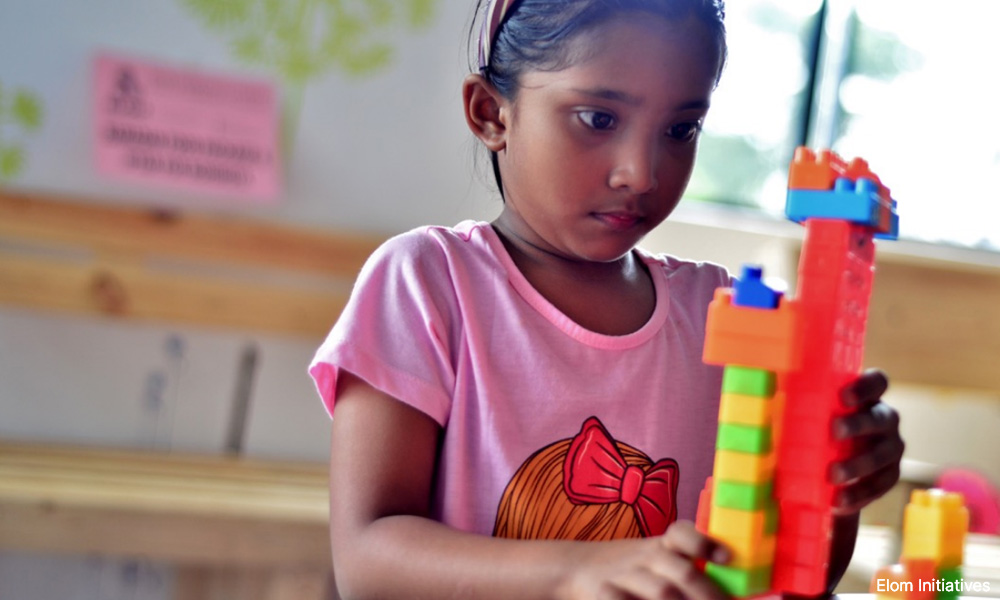
In 2001, together with 200 other Rohingyas seeking temporary refuge in Malaysia, Sujauddin embarked on a nationwide survey of the Rohingya population and completed it in four months.
“We logged a population of 12,000 refugees including 2,000 women which were submitted to the UNHCR, as we lobbied for refugee recognition.
“We had set up the Rohingya Refugee Foundation to carry out this mammoth task. Until then, Rohingyas were considered economic migrants” he explained.
The campaign was successful and the UNHCR started issuing temporary protection letters to Rohingyas.
During his five years as a refugee in Malaysia, Sujauddin helped set up the Rohingya National Council and the Rohingya Youth Association.
He explained that Elom was a fruit of all the work carried out by these organisations.
Once in Australia, the 41-year-old had worked with a local NGO and throughout his 11-year stint with them, he had worked with refugees in Nauru, Papua New Guinea and Cambodia.
However, Sujauddin declined to share his experiences from his time spent in the detention centres in Thailand and Malaysia or compare them to the refugee detention centre where he did aid work.
He had also co-founded community-based organisations in Australia and Myanmar.
More recently, Sujauddin’s decision to give up the NGO job and set up a café in Brisbane allowed him more time for Elom Initiatives and profits from the café too were poured into this endeavour. - Mkini



No comments:
Post a Comment
Note: Only a member of this blog may post a comment.